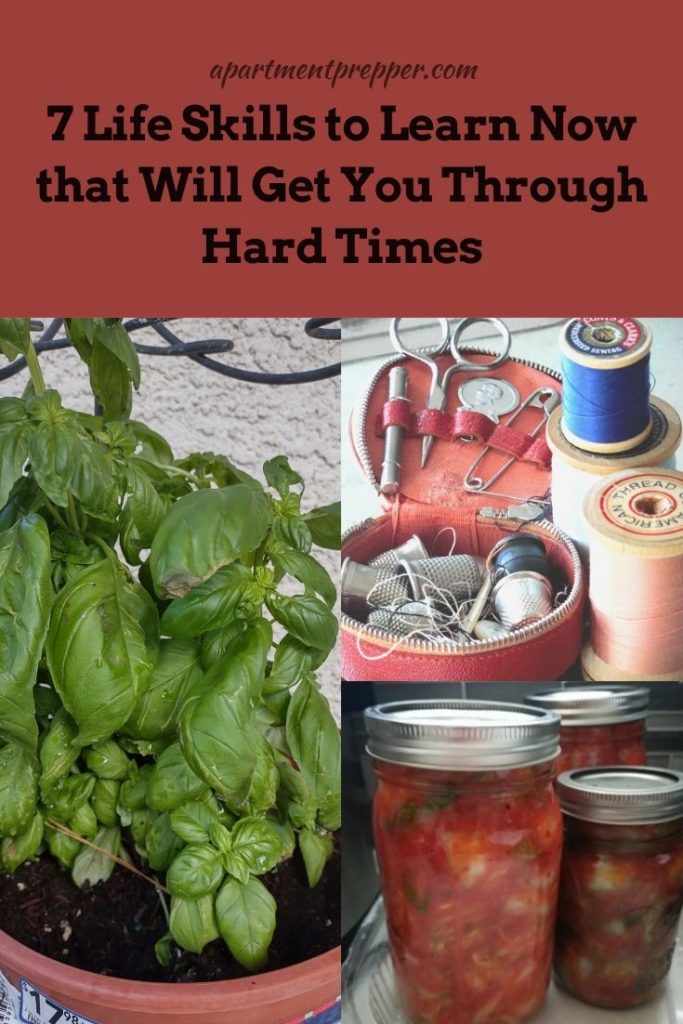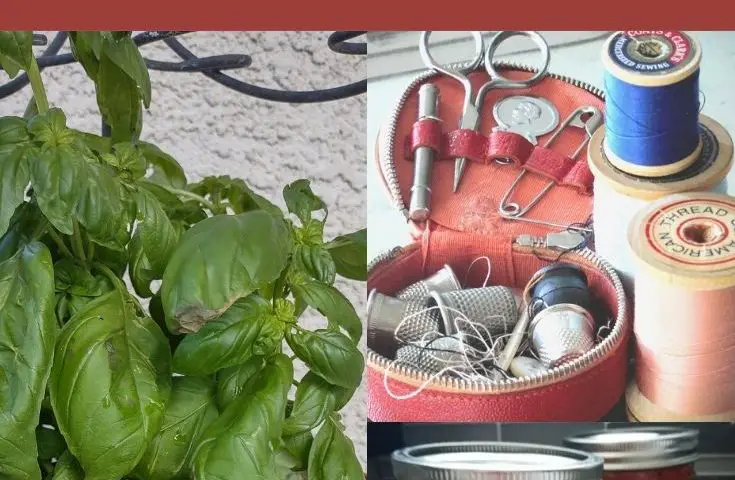Written by Bernie Carr
The way this past year has been going, it seems like things are about to get tougher. Gas prices are higher that they have been in years, prices for food and everything else have skyrocketed, yet we are not seeing much wage increases. In fact, I have been of hearing companies laying off employees, as they cut back or send jobs off-shore.
We’ve talked a lot about building your food and product stockpiles, but the other part of the equation is to learn some skills.
No matter how old you are it is never too late to pick up a skill or two. Just try it, even if you think you have no ability in that particular area. Here’s a list of skills I believe will come in handy as times get harder:
Cooking
I know several people who don’t cook at all. They eat out or order delivery on a daily basis. Their fridge may have drinks, yogurt and snacks but no meal preparation ingredients whatsoever. When asked why they never cook, they feel they just don’t have the knack for it. If you are someone who has never learned to cook, don’t be so hard on yourself. You know eating out is getting expensive, so now is the time to learn a few recipes.
It doesn’t have to be complicated. Here are a couple of cooking sites on YouTube that I follow:
If you don’t go for videos, but prefer websites, I like BudgetBytes. There’s also a cookbook: Budget Bytes: Over 100 Easy, Delicious Recipes to Slash Your Grocery Bill in Half: A Cookbook
Food preservation
With food prices rising almost daily, it makes sense to stock up on loss leaders at the store. Buy a good quantity when the item is on sale. But when you have a lot of something, you have to figure out what to do to avoid the food from spoiling. If you have a few ways to preserve food, you’ll avoid waste.
You can dehydrate foods even without a food dehydrator, but having one makes it easier.
Making pickles is another way you can preserve food.
I recently released my book that covers ways you can be more self-sustainable. Here is the link:

Make your clothes last longer – learn to sew
I must admit, I have never made a piece of clothing in my entire life. But I learned how to repair my own clothes. Before I learned how to do it myself, I was taking clothes to the tailor at the cleaners and was getting charged a lot of money to hem pants. Then I watched a YouTube video and found out it was easy to do, even without a sewing machine.
You can also learning simple mending techniques here: Mending with Love: Creative Repairs for Your Favorite Things
Grow a garden
A lot of apartment dwellers may feel challenged that they don’t have enough space to plant a garden. You don’t need a large plot of land – just try growing one or two herbs. You can even try growing herbs indoors. I recently bought a basil plant at Trader Joe’s for just $3 and placed it out in the patio. In a week it started growing so I transferred it to a larger pot that another renter left behind. I also started planting the root part of green onions instead of throwing them away. Now I have several green onion plants. Here’s a photo of a couple that I started growing.
If you really don’t have any room at all, try sprouting seeds. You don’t need dirt, they grow in water and you can have fresh food anytime.
Basic car maintenance
Even if you don’t consider yourself a car aficionado, you can learn to do some basic maintenance. Recently, one of our brake lights went out. Instead of taking the car to a service center, Mr. Apt Prepper (who does not consider himself a “car guy”) found out how to do it himself. He talked to a friend who fixes cars, watched a YouTube video, and bought the brake light. The next day, he replaced both brake lights, since they have to match in brightness.
Learn how to do simple tasks such as changing the oil; even washing your own car instead of taking it to the car wash will save you some money. Read your owners manual and make sure you purchase the correct part. Before attempting repairs, make sure you have the basic tools needed to do the job. If your car needs more complex repairs, get a second or third opinion and quote. It pays to shop around.
Basic first aid
When a disaster happens you may not be able to get to a hospital right away. It’s a good idea to learn some basic first aid. I took a free CPR class at my workplace a few years ago. I’ve also read a few first aid books and I kept them for future reference.
Some good resources:
The Survival Medicine Handbook: The Essential Guide for When Help is NOT on the Way by Joseph Alton, M.D. and Amy Alton, APRN – this is their latest book, available on paperback. Having a hard copy is ideal, so you are not dependent upon electronic devices.
The Prepper’s Medical Handbook by William Forgey, M.D.
But, if you like having a first aid book on your phone, this one is a good option:
The Ultimate Survival Medicine Guide: Emergency Preparedness for ANY Disaster by Joseph Alton, M.D. – the e-book is a bargain at just $1.99 on Amazon.
I also downloaded a first aid app on my phone.
Reuse and recycle
The old saying “Use it up, wear it out, make it do, or do without.” is more applicable than ever. Avoid wasting food, water and other resources. Find other uses for materials instead of throwing them away. Here’s are some examples:
20 ways to reuse and repurpose towels
5 uses for coffee grounds that really work
Don’t toss them out: 12 uses for fruit peels
This is just a starter list. There are other skills such as self-defense, hunting, fishing that would all come in handy. You don’t need to learn these skills all at once. Just start with one or two that interest you and go from there.
We are an affiliate of Amazon.com, which means we received a small commission if you click through one of our Amazon links when you shop, at totally no cost to you. This helps keep the lights on at the blog. Thanks!
Bernie Carr is the founder of Apartment Prepper. She has written several books including the best-selling Prepper’s Pocket Guide, Jake and Miller’s Big Adventure, The Penny-Pinching Prepper and How to Prepare for Most Emergencies on a $50 a Month Budget. Bernie’s latest e-book, FRUGAL DIY has just been released on Amazon. Her work appears in sites such as the Allstate Blog and Clark.com, as well as print magazines such as Backwoods Survival Guide and Prepper Survival Guide. She has been featured in national publications such as Fox Business and Popular Mechanics. Learn more about Bernie here.
Sewing Image by Rebecca Matthews from Pixabay




I’d add, learn to keep warm. My friend who’s from England was surprised when she came here and people had their heaters set on 60s and 70s – where she’s from most people keep their heat on around 55 F and are used to wearing warm pj’s rather than little nighties, sweaters in the house, and layers. She always has throws around to put on her lap when she’s reading or sewing.
Two liter bottles make great hot water bottles, just fill them with the hottest water that comes out of your kitchen tap. If you make a flannel cover for them or wrap them in a flannel pillowcase they’ll stay warm most of the night (try the thrift stores), and it’s much easier to fall asleep if your feet are warm. You can get sheets of rigid foam insulation with one foil side to put in your windows, covering them with something like a white tarp or old sheet if your landlord insists on white window coverings. If you can afford flannel sheets, it makes a world of difference when getting into bed on a cold night. Closing off rooms you’re not using during the day, then opening the doors an hour before bedtime will save on heat too.
It’s interesting to read older housekeeping books for advice – in past times many families could only afford to heat one room, or they had a fireplace that didn’t reach the bedrooms. They have a lot of inventive ideas on how to keep yourself warm without spending so much.
Hi Mme Homebody, That is good advice, learning to keep warm without power is important. Good tip about the 2-liter hot water bottles. Thanks for the comment.
I got a kick out of the brake light guy. My husband is NOT a mechanic, but thanks to youtube and my mechanical uncle, he pulled and rebuilt the transfer case on our truck. It saved thousands of dollars as opposed to taking it to a shop. We have a local shop change the oil because at this point it’s easier than having to deal with the used oil/tranny fluid, but if it came down to it, we’d do that ourselves too!
Hi Sita, Wow that’s great you saved a bundle on the transfer case! Oil change is definitely a messy task, my Dad and brother do it themselves, we’d try it if it gets too expensive. Thanks for the comment!